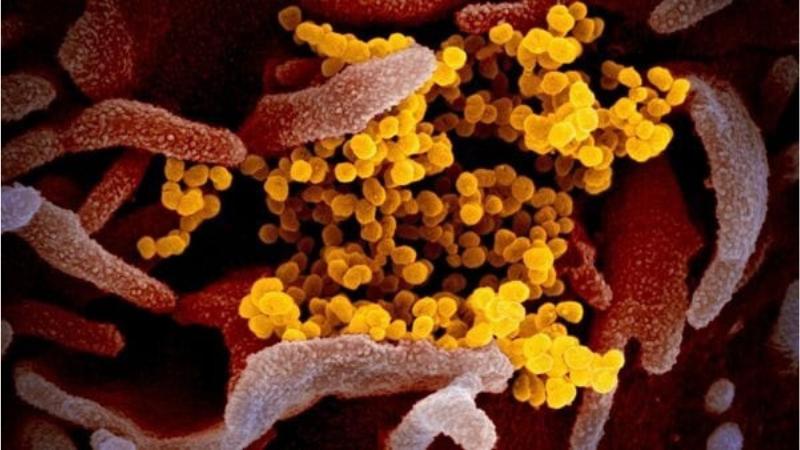
- devara
- 03 Jan 2025 02:20 AM
- HMPV, ChinaHealthCrisis, RespiratoryVirus, PublicHealth
-
Surge in HMPV Cases in China:
-
China is currently experiencing a significant rise in human metapneumovirus (HMPV) cases, causing overcrowded hospitals and health concerns.
-
Social media posts indicate the circulation of other viruses like influenza A, Mycoplasma pneumoniae, and COVID-19 alongside HMPV.
-
What is HMPV?
-
Human metapneumovirus (HMPV) is a respiratory virus that causes flu-like symptoms and can lead to severe respiratory issues.
-
It was first identified in 2001 and affects individuals of all ages, but young children, the elderly, and those with weakened immune systems are most vulnerable.
-
Symptoms of HMPV:
-
Common symptoms include:
-
Cough
-
Fever
-
Nasal congestion
-
Shortness of breath
-
In severe cases, HMPV can lead to bronchitis or pneumonia.
-
Symptoms typically last for varying durations depending on the severity of the infection, with the incubation period between three to six days.
-
How HMPV Spreads:
-
HMPV spreads in similar ways to other respiratory viruses, through:
-
Secretions from coughing and sneezing
-
Close personal contact (e.g., shaking hands or touching)
-
Touching contaminated surfaces and then touching the face (mouth, nose, or eyes)
-
Who is Most at Risk?
-
The CDC identifies the following groups as being at higher risk from HMPV:
-
Young children
-
Older adults
-
Individuals with weakened immune systems
-
When to Seek Medical Help:
-
It's important to visit a doctor if:
-
Respiratory infection symptoms persist or worsen.
-
A fever lasts for more than three days without improvement.
-
You or your child have a pre-existing condition that increases the risk of complications.
-
How to Prevent HMPV:
-
Preventive measures are similar to those for other respiratory illnesses:
-
Wash hands regularly with soap and water for at least 20 seconds.
-
Avoid touching the face with unwashed hands.
-
Keep a safe distance from individuals showing signs of illness.
-
Clean frequently touched surfaces such as doorknobs and toys.
-
What to Do if You Experience Symptoms:
-
Follow good hygiene practices to prevent the spread of the virus:
-
Cover the mouth and nose when sneezing or coughing with a tissue.
-
Wash hands regularly with soap and water.
-
Avoid sharing personal items like utensils and cups.
-
Stay at home and rest if you're feeling unwell.
-
Treatment and Vaccine for HMPV:
-
Currently, there is no specific antiviral treatment or vaccine for HMPV.
-
Medical care for HMPV cases is supportive, focusing on alleviating symptoms and preventing complications.
-
HMPV vs. COVID-19:
-
Both HMPV and COVID-19 cause similar respiratory symptoms, including cough, fever, and shortness of breath, and both spread through respiratory droplets.
-
Severe cases of both viruses can lead to hospitalization.
-
HMPV typically peaks during the winter and spring, while COVID-19 spreads year-round due to evolving variants.
-
Studies show that HMPV cases have tripled in some regions after COVID-19 restrictions were lifted, possibly due to weakened immunity during the lockdown period.
-
Current Health Situation in China:
-
Although there are concerns about a health crisis, there has been no official confirmation of a state of emergency being declared in China.
-
The situation is evolving, and authorities are closely monitoring the spread of HMPV and other respiratory viruses.






































